Everyone has an opinion about WordPress—whether they think it’s the best or somewhat of a dinosaur—you’re going to hear multiple points of view. While I understand that selecting a website builder is very personal and subjective, there are also objective realities that should be considered. Below, I explain why you should use it and what it means for your business or next project.
TL;DR
I offer five reasons why using WordPress is worth consideration (#2 and #5 are reason enough). Most of the flack WordPress gets is gossip and misconception (e.g., it’s not insecure, hard to use, or a dinosaur). WordPress also gives Wix, Squarespace, and Shopify a run for their money—see our comparison for more on why I say that. Part of what makes WordPress worthwhile are products like Divi that help users reach their goals.
Let’s start with the bullet point rationale for why we think you should use WordPress and why it’s a good decision. Spoiler: WordPress is far and away your best option.
Reasons Why You Should Use WordPress
We’ve compiled five reasons that have convinced ourselves (and others) why WordPress is worth building on. Your choice in what you build with is deeply personal, and we want to show you the best side of WordPress. We really believe that you can find success with it, and that’s why we heartily recommend WordPress to you for these reasons:
Subscribe To Our Youtube Channel
1. Flexibility and Customizability
WordPress remains the single best choice for small business owners and those creating new or smaller websites due to its unmatched customizations.
Though this point is oft repeated, WordPress’s key strength is its vast ecosystem of themes and plugins. Think of themes as your website’s overall design and layout, while plugins add specific functionalities. This modular approach allows website owners to start with a basic website and gradually add features as their business grows without needing a complete overhaul.
With millions of developers using the platform (and doing so for over 20 years), there is not a problem that someone hasn’t already figured out and either offered as a free plugin/theme or provided it for a reasonable price. You simply cannot find that anywhere else to the same extent as with WordPress. This community-driven development ensures that WordPress stays current with web technologies and trends, ensuring that you have access to a future-proof platform.
It’s so flexible that you can even assemble a small plugin using ChatGPT in a couple of hours (we’ve done plenty of those quality-of-life plugins around here).
2. SEO-Friendly
If you follow SEOs (people who specialize in SEO) on X or LinkedIn, you quickly find out that they tend to gravitate toward WordPress. Not exclusively, but very much primarily. That’s because it not only simplifies on-page SEO but also offers the capability for detailed technical SEO, especially when they can get developers involved.
When you think of SEO on a platform like Wix or Squarespace, each platform gives you one way of performing routine SEO tasks on your site. While acceptable for a novice, you get more mileage from WordPress than with these proprietary platforms.
SEO Plugins and Built-in Functionality
With WordPress, you have several options for SEO implementation via SEO plugins. You have Rank Math, Yoast, SEO Framework, SEOPress, AIOSEO, and even more. All those options have free and paid versions (with a ton of SEO-optimization power built in). It’s not an overstatement that with WordPress, you can create an SEO function in your business or website however you see fit.
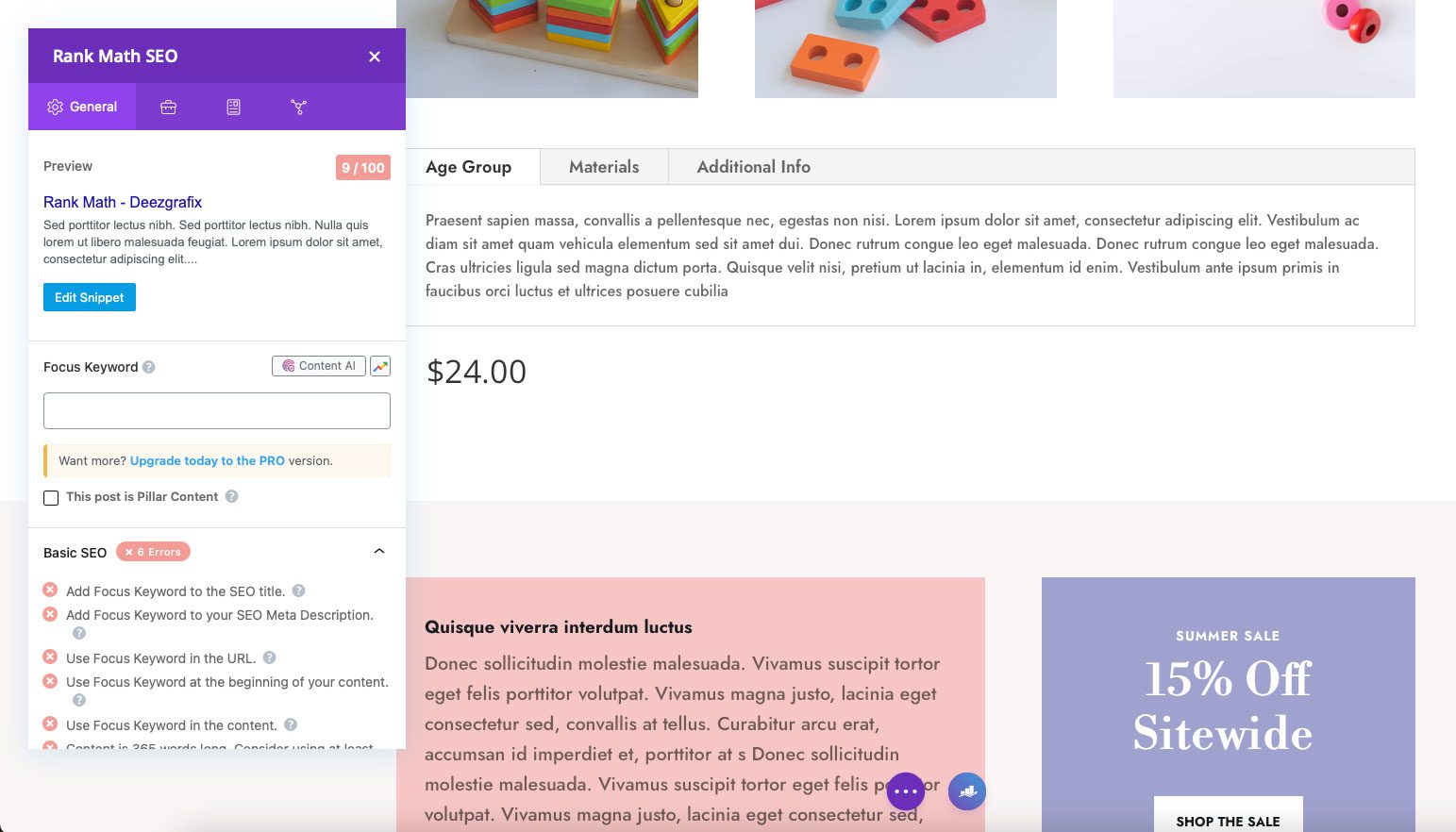
Rank Math Page/Post Optimizer Integrated with Divi
There are also interesting plugins to help you better understand your website or perform specific SEO tasks. A unique example is Bot Logger, which helps you see how search engines crawl your website and spend their crawl budget. Google has even made plugins for WordPress—their Site Kit plugin allows site owners to install Google Analytics, Search Console, Tag Manager, and Ad Sense. Wix doesn’t have any marketplace items built by Google, but Google happily contributes to the development of WordPress—I’ll leave it to you to draw conclusions.
Taking a step back from SEO plugins, WordPress is built for SEO. There is plenty of customization with features like permalinks, link architecture through parent/child relationships, sitemaps, and mobile responsiveness. Designing for user experience is easy with page builders like Divi or the built-in Block Editor.
3. Community Support
While it’s not a sexy reason to use WordPress, community support is definitely a reason to feel at ease with it.
You won’t find another website builder out there with more Reddit threads, answered Stack Overflow questions, or other free forums for the sole purpose of helping people use the software. What’s more, besides general WordPress community support, communities are built around highly used products (like Divi’s Facebook Group with 75k members) to help you get the most out of your favorite solutions.
There’s nothing like getting a little help from your friends.
And don’t worry—virtually every premium plugin and theme you choose to use offers plenty of premium support. For instance, Divi offers live chat and email support to every Divi Member—even lifetime members!
We offer even faster support to Divi VIP subscribers who need faster resolutions. The WordPress and Divi knowledge those support agents have is out of this world and well worth tapping into.
4. Ecommerce Powerhouse
Some of you reading this might be surprised to find out that WordPress is one of the largest eCommerce solutions. Well, WordPress + the free WooCommerce plugin, that is.
Shopify gets a lot of attention because it only does eCommerce, simplifying how people think about it—Shopify = eCommerce in their minds. But WordPress is no eCommerce slouch and offers plenty of reasons to use it. Here are some things that WooCommerce can do that will be of interest to store owners:
- Manage inventory
- Process payments through multiple gateways
- Set up shipping options
- Calculate taxes
- Handle orders and customer accounts
- Accept tips or donations
With a WooCommerce-optimized theme like Divi, you can add attractive product pages, checkouts, and storefronts to that list.
Build an Online Store with Divi
5. Scalability
WordPress is designed to accommodate both small and large websites, making it suitable for businesses at any stage.
As your traffic increases—from a few hundred visitors to thousands or even millions—WordPress can handle this growth without requiring a complete redesign or migration to a different platform. This flexibility is crucial for businesses anticipating growth without redoing it with more resources.
You’ll notice that the same base technology (WordPress) is used on large websites like WhiteHouse.gov, as with brand new websites that you create on a Siteground hosting plan. This should give you massive reassurance that WordPress can and will grow as you need it to.
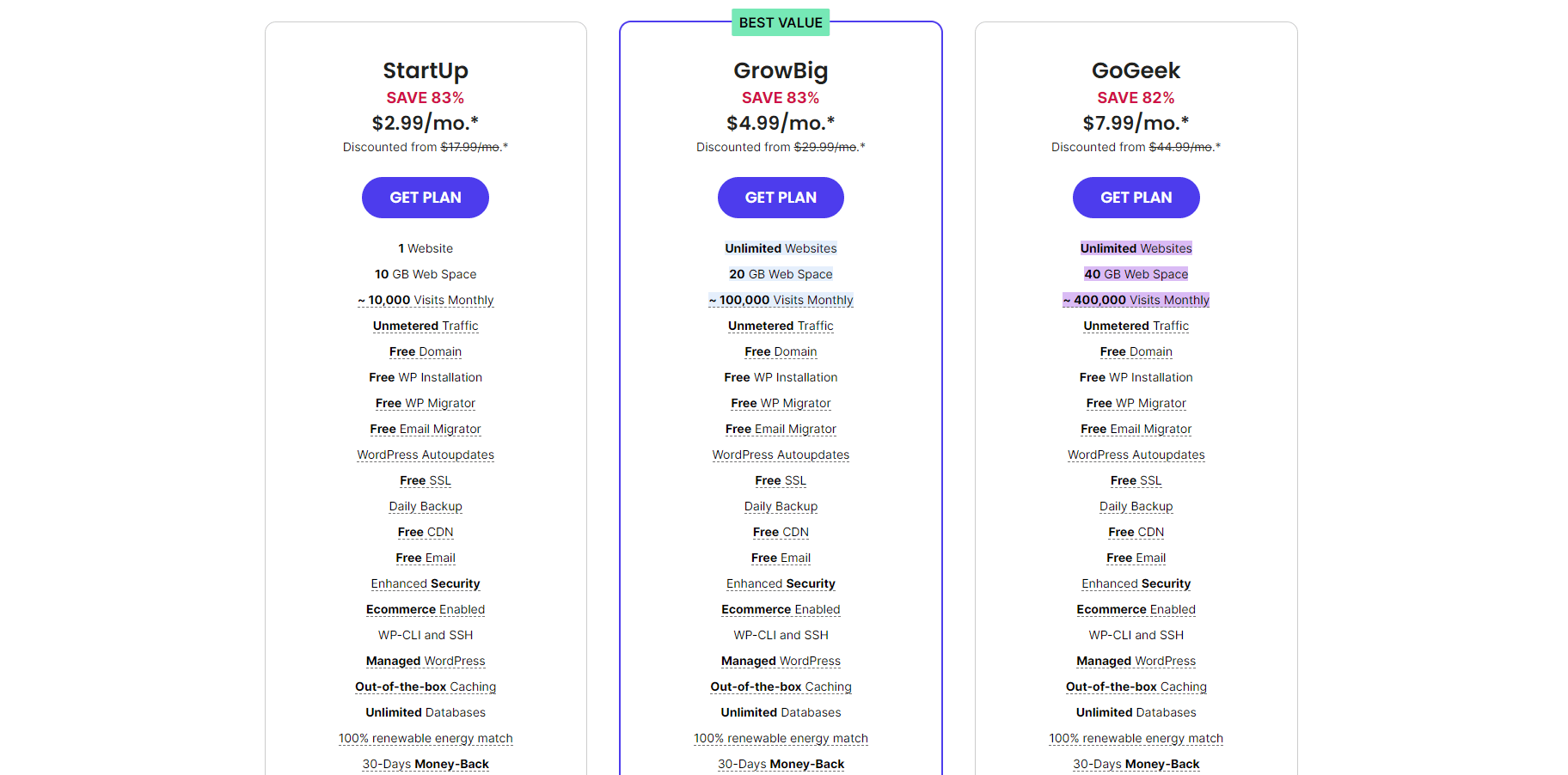
Host Pricing that easily scales from $2.99/mo to custom cloud pricing for large websites
One of the primary reasons businesses need scalability is to manage increased online traffic effectively. WordPress can support high traffic volumes, but its performance largely depends on the hosting environment.
Just like proprietary site builders, hosting companies typically offer various tiers to support more of this traffic. This is usually a simple upgrade that can help you scale from shared to managed and cloud hosting. Also, layering in things like optimization plugins, caching, and CDNs and getting more disciplined with plugins will help your site perform at its best.
Debunking Misconceptions about WordPress
There is a lot of old and misleading information about there concerning WordPress. We’ll clarify what we can so you can consider it for your projects instead. Many people dismiss WordPress out of hand without knowing it might be the optimal solution for their website.
Slow Performance
This misconception is largely unfounded. While it’s true that a grossly unoptimized WordPress site can be slow, proper optimization and quality hosting can make WordPress extremely fast.
- Caching plugins like WP Rocket or W3 Total Cache can dramatically improve load times
- Content Delivery Networks (CDNs) distribute static content globally for faster access (SiteGround offers a free CDN to customers)
- Database optimization and query caching reduce server response times
- Removing unused plugins and only using necessary plugins for what you need (you can get away with more plugins on better hosting)
Hard to Manage
It’s true that if you compare WordPress to something like Weebly, you’ll find yourself clicking the “Update” button a lot. But this isn’t all that bad and is hardly the full story. Managed WordPress hosting providers like WP Engine or SiteGround can automatically handle updates, security, and backups.
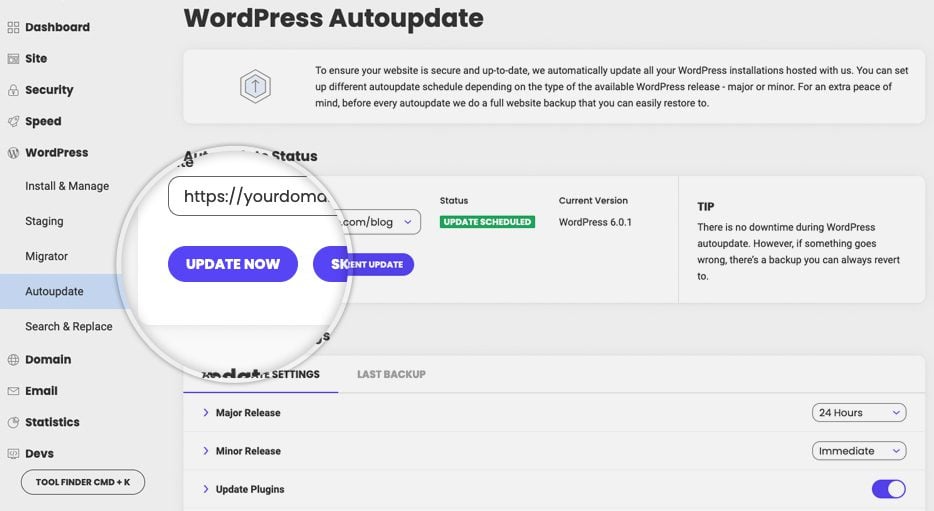
Set detailed auto-update rules so you are in control of your updates while leveraging effortless automation
You will also find that the freedom WordPress affords you in terms of site building makes things easier. Whether you want to use WordPress’s Classic Page Editor or something very visually sophisticated like Divi, you can create the workflow you feel most comfortable with. This makes things easier, not harder to manage.
Most things that make web design and development difficult to manage come down to functionality. Can I do this thing that I have in mind on my website? With a platform like Wix or Squarespace, that typically is a binary yes or no answer. With WordPress, you’ll much more often say “Yes” to your ideas rather than abandoning them altogether. If you ask me, that sounds like it is much easier to manage than most other solutions.
Poor Security
While WordPress sites can be vulnerable if not properly maintained, the platform itself is very secure when best practices are followed:
- Regular updates to WordPress core, themes, and plugins address security vulnerabilities
- Security plugins like Wordfence or Sucuri add additional layers of protection
- Managed hosting providers often include security features to protect their customers
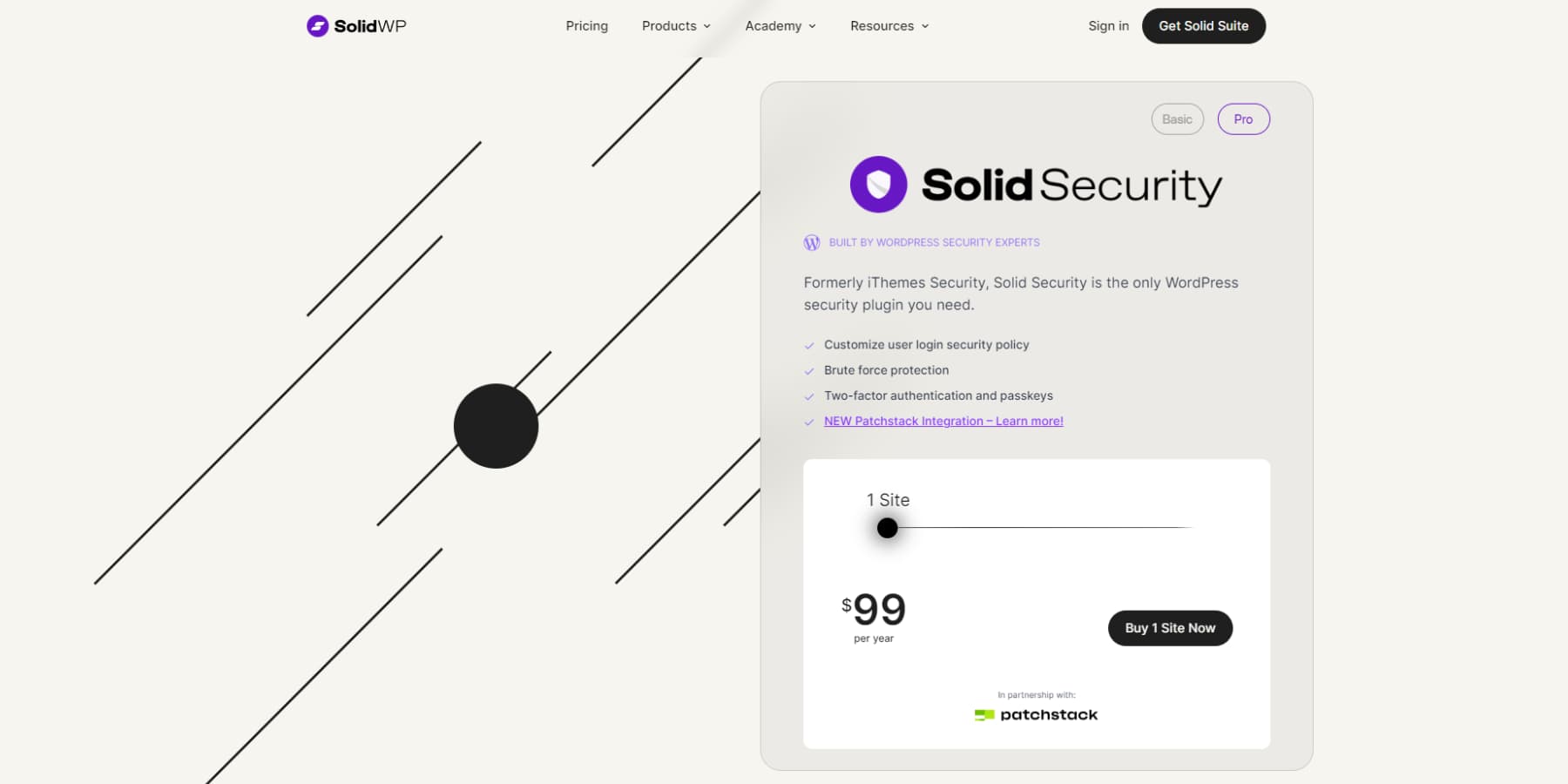
Solid Security: An example of a WordPress plugin that makes Security a breeze
Yes, security is more up to the site owner with WordPress, but that’s one small cost associated with all the other benefits of its features and customization. Since it is relatively easy to maintain a secure site, this shouldn’t cause too much concern.
Behind the Times
WordPress is over 20 years old. But that isn’t to say that its code is 20 years old.
Every year, WordPress uses more updated versions of PHP, JS, JQuery, and SQL—and that’s just the basest-of-base programming languages used to make WordPress. WordPress itself is being worked on by thousands of volunteers every day. With every update, WordPress stays relevant for those who build, manage, market, and provide technical upgrades for WordPress websites.
WordPress has never been more relevant for those performing technical SEO. WordPress hasn’t reached its peak in terms of eCommerce relevance and usefulness. It even is still at the top of usage for technology on the internet.
Sure, you’ll find things (like the Admin dashboard UI) that feel dated. But the most important things are getting better and better. Then, when you consider some of the most competitive and use plugins and themes that are pushing boundaries themselves—you get a very different picture than from those who say WordPress is a dinosaur.
Look at Divi AI, for example. It offers cutting-edge AI website building that rivals or outpaces many platforms built in the last two years.
How Does WordPress Compare?
Anyone creating a new website is going to look at their options. WordPress is frequently mentioned but so are some other solutions. Here’s a quick
WordPress vs. Wix
WordPress is a much more flexible platform than Wix. Wix does win with drag-and-drop interface (though I find it limiting)—ideal for beginners. Wix has a more straightforward setup, but there is a definite ceiling limiting its customization. With its plugin library, WordPress provides more advanced features suitable for complex websites. However, Wix can become expensive as you add more features.
How to Get Better Onboarding with WordPress
Since most people like how easy Wix is to get up and running, it’s worth noting that you can have a similar experience on WordPress. Divi features a fantastic onboarding experience that lays all the groundwork for your website. An onboarding screen will appear once you purchase Divi and install it on your website. You can choose from pre-made starter sites that can give you a completely designed website from head to toe (or header to footer).
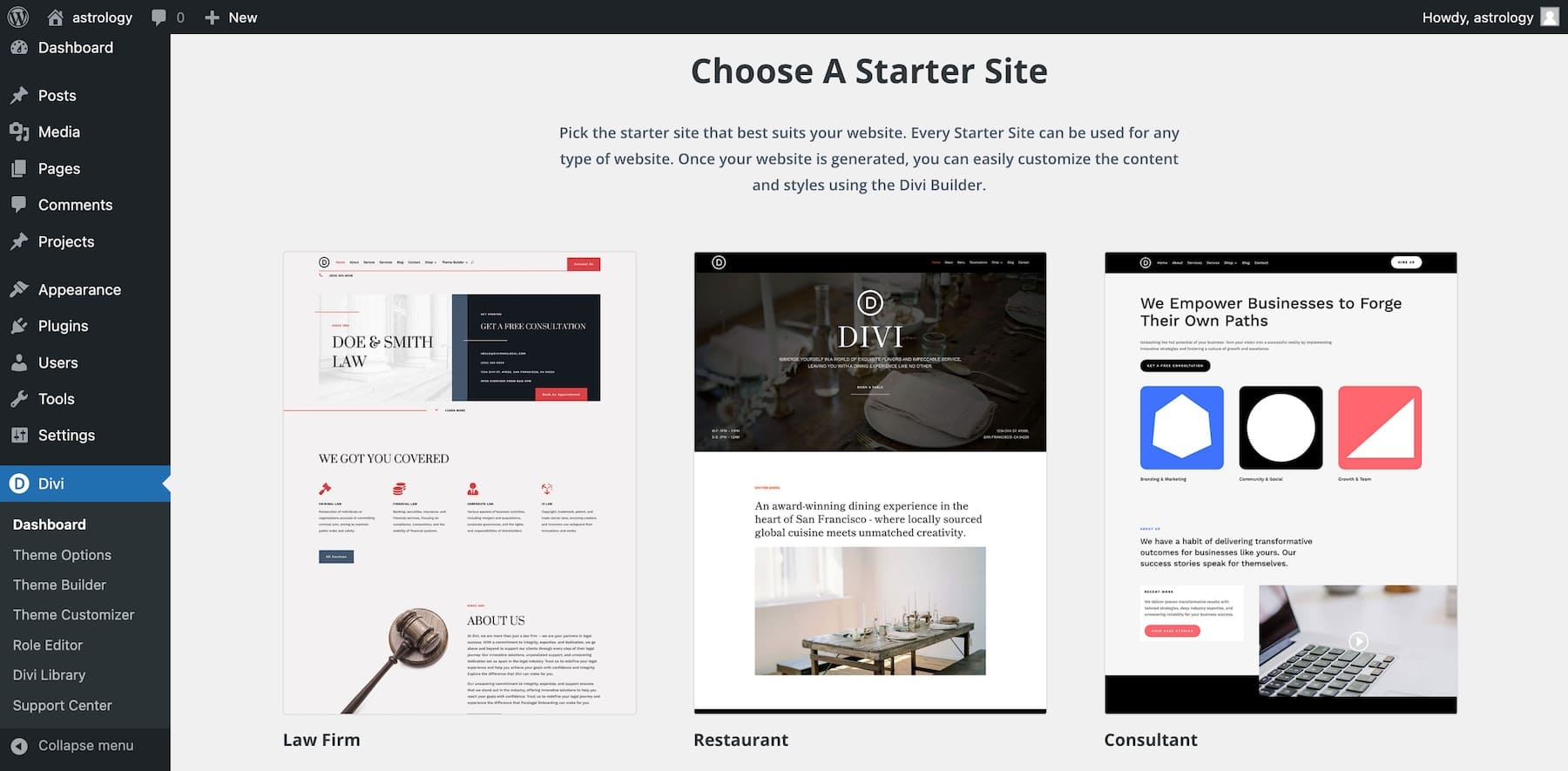
If you grabbed Divi Pro, you can choose to create a fully AI-generated website that makes all your pages (with written content!) and theme builder templates. You have a fully designed website ready to edit in under a couple of minutes (with Starter Sites or an AI Quick Site). It’s the fastest way to get a full website up and running.
WordPress vs. Squarespace
Squarespace is known for beautiful templates and refined designs, appealing to many creatives. While it offers ease of use, it has fewer customization options than WordPress. WordPress, through its open-source nature and plugins, provides greater flexibility and control over design and functionality.
How to Use Well-Design WordPress Templates
Since most people are drawn to Squarespace templates and simple design interfaces, Divi’s Visual Builder is worth noting. It does everything Squarespace does (but, actually, way more, too) and comes stocked with thousands of premade layouts for you to choose from. Premade layouts can be loaded onto any page and then customized with the visual builder. The Starter Sites mentioned above are similar but applied across your whole site for you (usually for new website builds).
WordPress vs. Shopify
Shopify excels in creating and managing online stores with its streamlined, user-friendly eCommerce features. Using plugins like WooCommerce, WordPress is versatile and customizable, offering a higher feature count and a large ecosystem of developers. Shopify enjoys so much good coverage because people can explain what it does (eCommerce) compared to WordPress, which can do it all. Many people go for the niche solution instead of looking into what WordPress can do.
Where WordPress Beats Shopify
There are two areas where WordPress absolutely and objectively beats out Shopify:
- Price
- Design Ease
Having worked with both, I can tell you that for every website I’ve tried to create on Shopify, I always rebuilt it with WordPress for cheaper. And since I started using Divi to create my eCommerce pages using Woo Modules, I’ve never looked back.
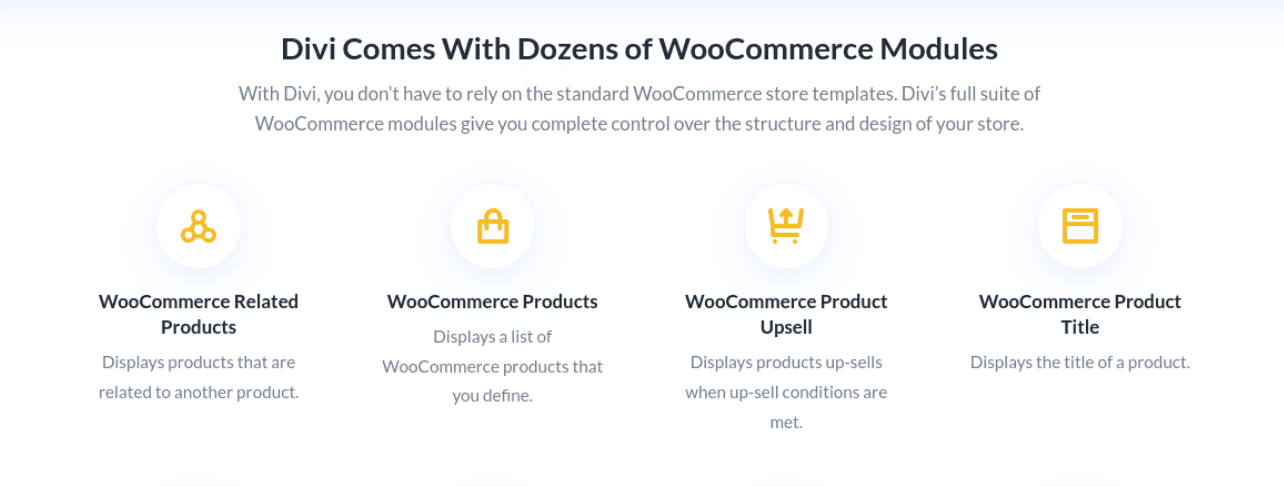
The pricing is simple enough to figure out based on your unique needs, but I can tell you that designing on Shopify will always be harder than working with an eCommerce-optimized page builder. There’s only one of those WordPress page builders that is an absolute no-brainer on price—it’s Divi (get the lifetime membership and never look back).
For detailed comparisons of these three platforms, see:
Why use WordPress for Popular Use Cases
WordPress can do it all, but by layering the right tools for your goal, you can have a lean and fast solution that is perfect for your use case. Here’s a look at a couple of popular use cases.
Why Use WordPress for Ecommerce?
WordPress is a top choice for eCommerce businesses due to its numerous plugins, like WooCommerce, which transform a standard site into a full-featured online store.
It offers tens of thousands of official plugins and customizable themes (like Divi), ensuring unique and responsive design. Built-in SEO features and plugins improve site visibility in search engines and AI agents.
WordPress is scalable, user-friendly, and integrates with tools like Google Analytics, Google Merchant, and other Advertising platforms. It also supports many payment gateways and shipping options. Thus, there’s virtually nothing that you can’t do with your store using WordPress.
Must have WordPress eCommerce Plugins:
Selecting the right plugins allows you to do much more—both in terms of functionality and user experience for WooCommerce stores. Below are our top picks:
- Start with WooCommerce; it’s the biggest and best solution
- Barn2 WooCommerce Plugins
- Yith WooCommerce Plugins
Read up on our guide to building an online store with WordPress
Build Your eCommerce Site with Divi
Why Use WordPress for Blogging?
WordPress is quite literally the OG blogging platform. Although it can do much more than create a blog, it still excels at this task.
WordPress is a user-friendly content management system that allows easy creation and organization of posts. It offers thousands of customizable themes designed for blogs, making design simple without needing special skills.
WordPress plugins do so much, including giving site owners SEO tools and social media integrations for better visibility. It also supports a built-in commenting system, multi-author management, media library, and scalability.
Needing help building a blog? Read our guide on building a blog with WordPress. Start to finish.
Must have WordPress Blogging Plugins:
- Rank Math SEO
- Akismet or Antispam Bee
- Monarch for Social Sharing
The Tools that Make WordPress Great
We’ve given a lot of reasons and rational to why use WordPress. Unlike many other platforms, the ecosystem of tools that connect to WordPress is one of its core strengths.
Here are several tools, plugins, and themes that work well with WordPress to make it the ideal website-building platform:
| Products that Make WordPress Great | Description | ||
|---|---|---|---|
| 1 | Divi Theme | Best WordPress Theme & Page Builder | Get |
| 2 | Rank Math | Best SEO Plugin | Get |
| 3 | AIOSEO | SEO Plugin | Get |
| 4 | Rank Math | WordPress Optimization | Get |
| 5 | Divi VIP | Expedited Customer Support on all your Websites | Get |
| 6 | WordPress | Content Management System (CMS) | Get |
| 7 | SiteGround | Scalable Web Hosting | Get |
| 8 | WP Rocket | Best Caching Plugin | Get |
| 9 | W3 Total Cache | Caching Plugin | Get |
| 10 | WP Engine | Managed WordPress Hosting | Get |
| 11 | Sucuri | WordPress Security Plugin | Get |
| 12 | Solid Security | WordPress Security Plugin | Get |
| 13 | Divi AI | AI Website Builder for WordPress | Get |
| 14 | Divi Layout Packs | Premade Website Layouts; Free with Divi Theme | Get |
| 15 | WooCommerce | Ecommerce Plugin | Get |
| 16 | Barn2 | WooCommerce Plugin Collection | Get |
| 17 | Yith | WooCommerce Plugin Collection | Get |
| 18 | SEOPress | SEO Plugin | Get |
Frequently Asked Questions
Here are some rapid-fire answers to common questions about why you should use WordPress.
Should I use WordPress?
- Flexibility: WordPress can be used to create a wide range of websites, from blogs to ecommerce stores.
- Ease of Use: Its user-friendly interface allows even non-technical users to manage content easily.
- Cost-Effective: WordPress itself is free, and many free themes and plugins are available.
- Scalability: WordPress can grow with your business, accommodating increased traffic and additional features as needed.
What are the disadvantages of WordPress?
- Complexity for Beginners: The vast array of themes, plugins, and settings can overwhelm new users. However, with time and the right resources, users can become proficient.
- Maintenance and Updates: WordPress requires regular updates to its core software, themes, and plugins. Managed hosting solutions can alleviate this burden by handling updates automatically.
- Security Vulnerabilities: As a popular open-source platform, WordPress can be a target for hackers. Utilizing security plugins and following best practices can mitigate these risks.
- Performance Issues: Without proper optimization, WordPress sites can become slow. However, quality hosting and optimization techniques can make WordPress sites very fast.
Is WordPress Free?
What is the main purpose of WordPress?
Why would you choose to use WordPress?
- Flexibility and Customization: Suitable for various types of websites with extensive customization options.
- Ease of Use: User-friendly interface and no coding required for basic site management.
- SEO Capabilities: Built-in SEO features and plugins to enhance search engine visibility.
What would you use WordPress for?
- Blogging: Originally designed as a blogging platform, it excels in this area.
- Business Websites: Professional sites with advanced functionalities.
- Ecommerce: Online stores using plugins like WooCommerce.
- Portfolios: Showcasing creative work.
- Membership Sites: Offering exclusive content to registered users.
Why is WordPress so popular?
- It’s Free and Open-Source: Accessible to everyone.
- Flexibility: It can be used to create almost any type of website.
- Ease of Use: Intuitive interface for managing content.
- Large Community and Support: Extensive resources and community support.

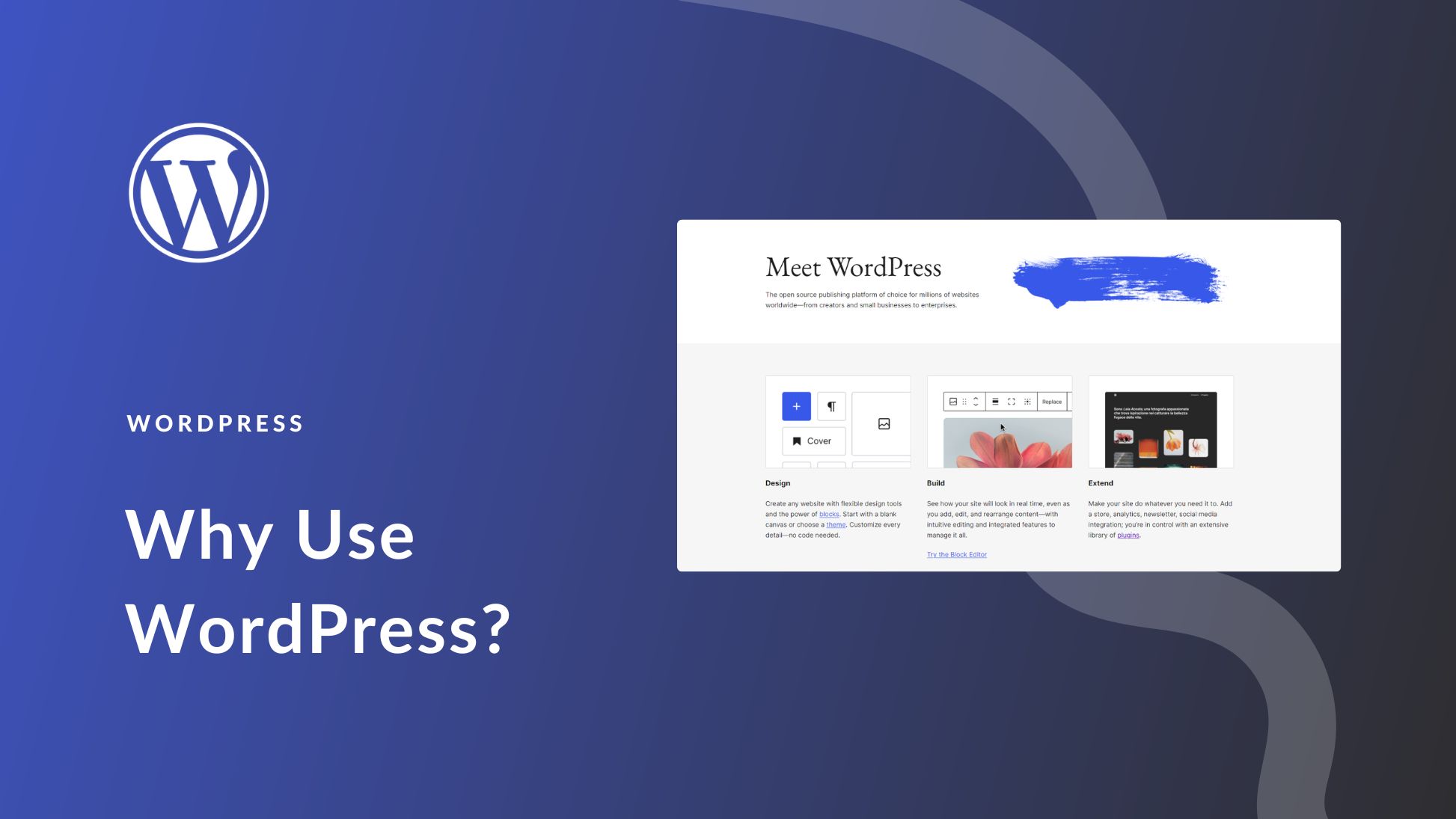
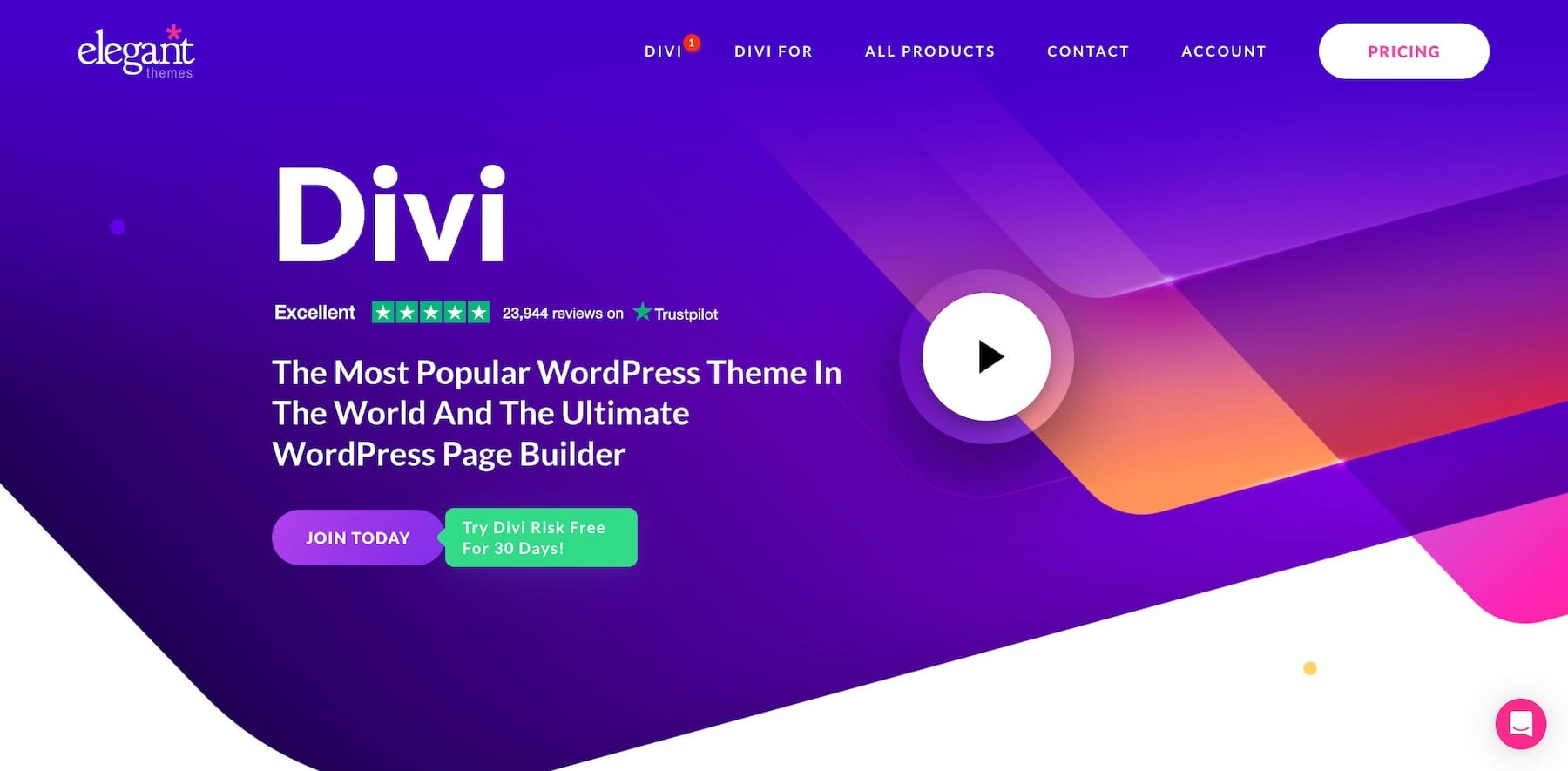
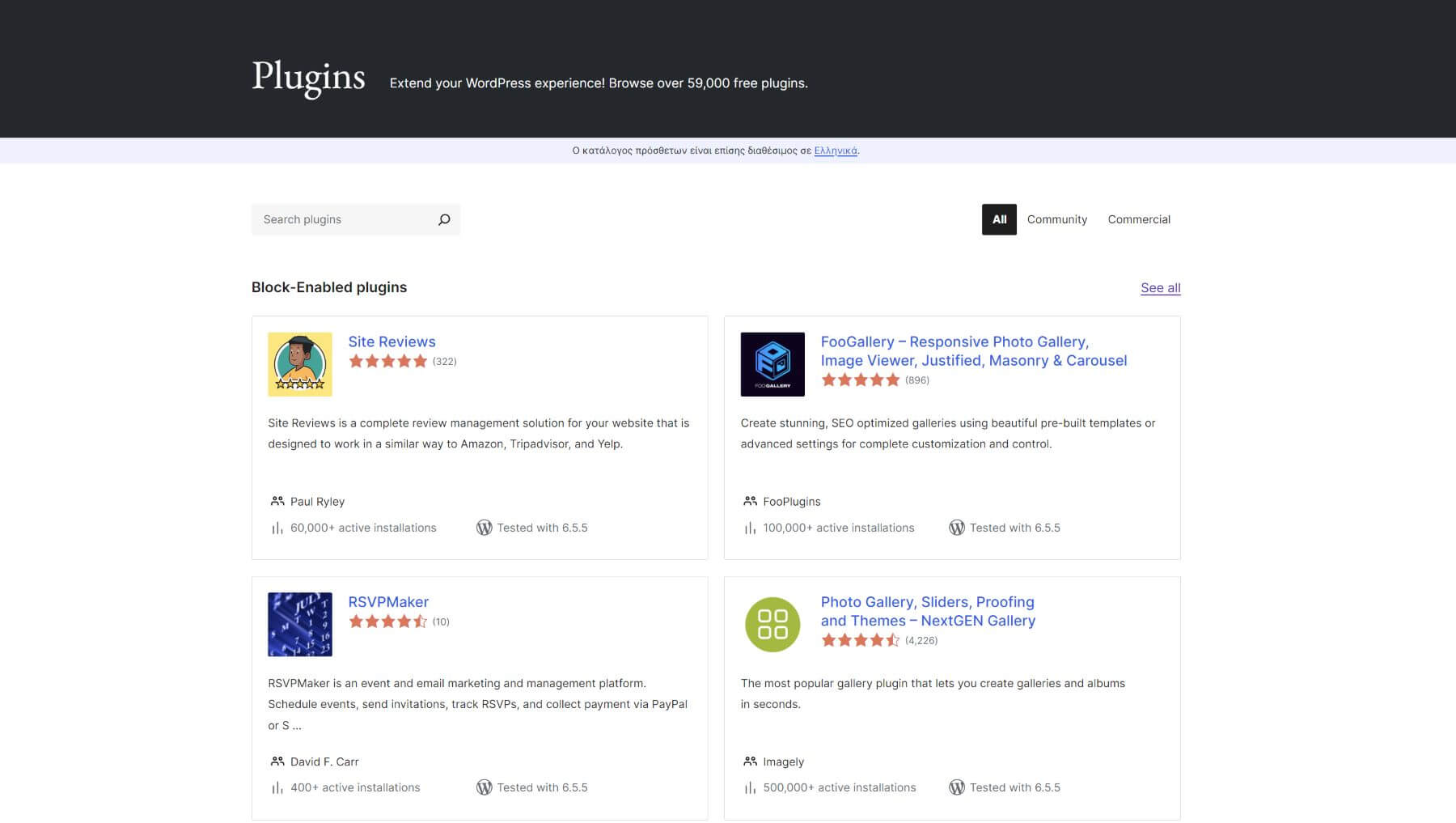
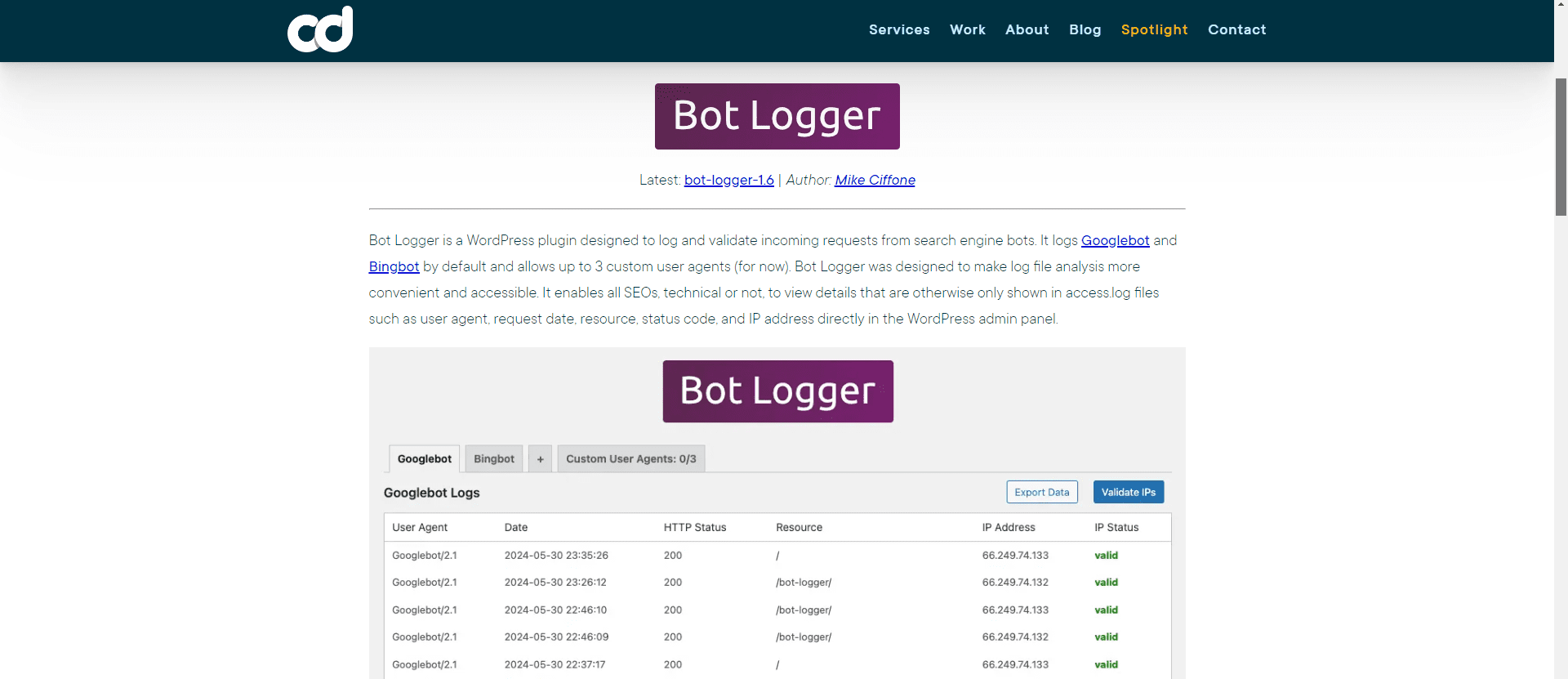
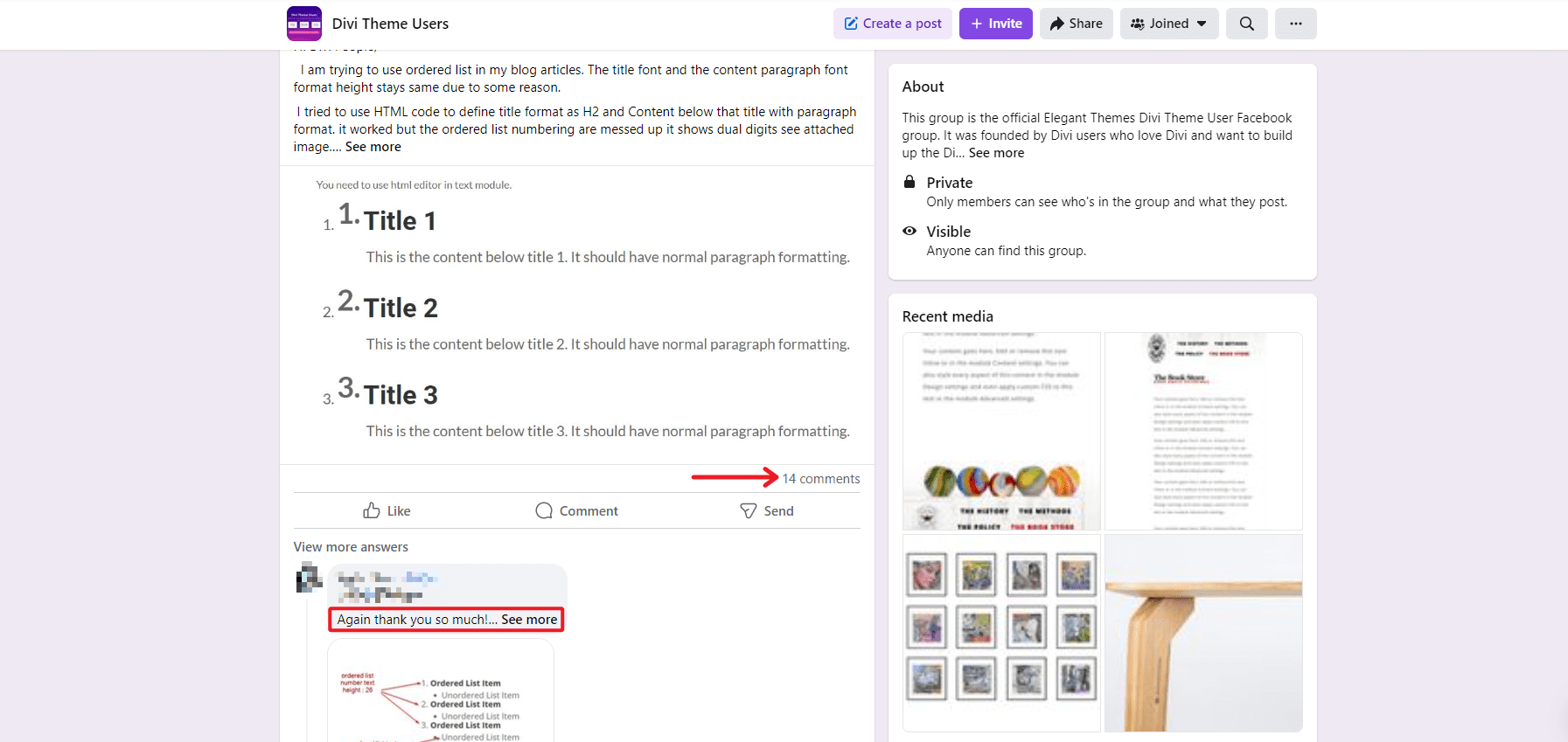
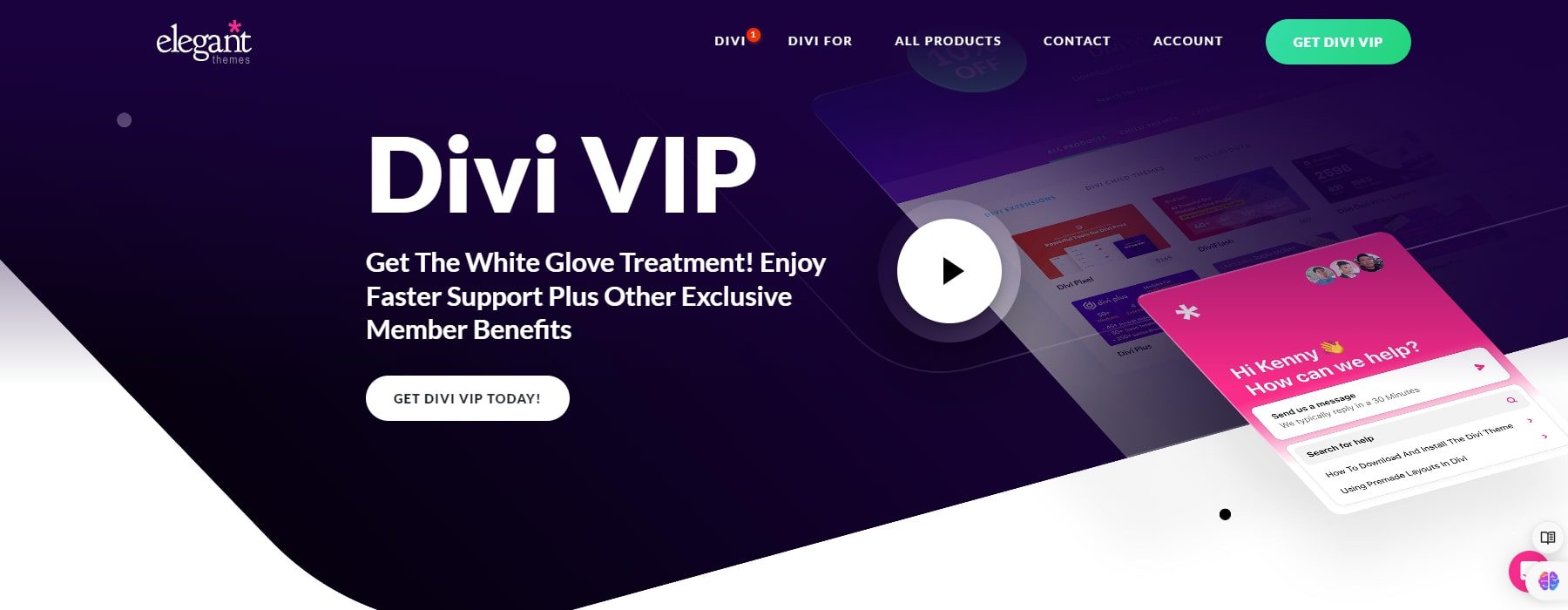
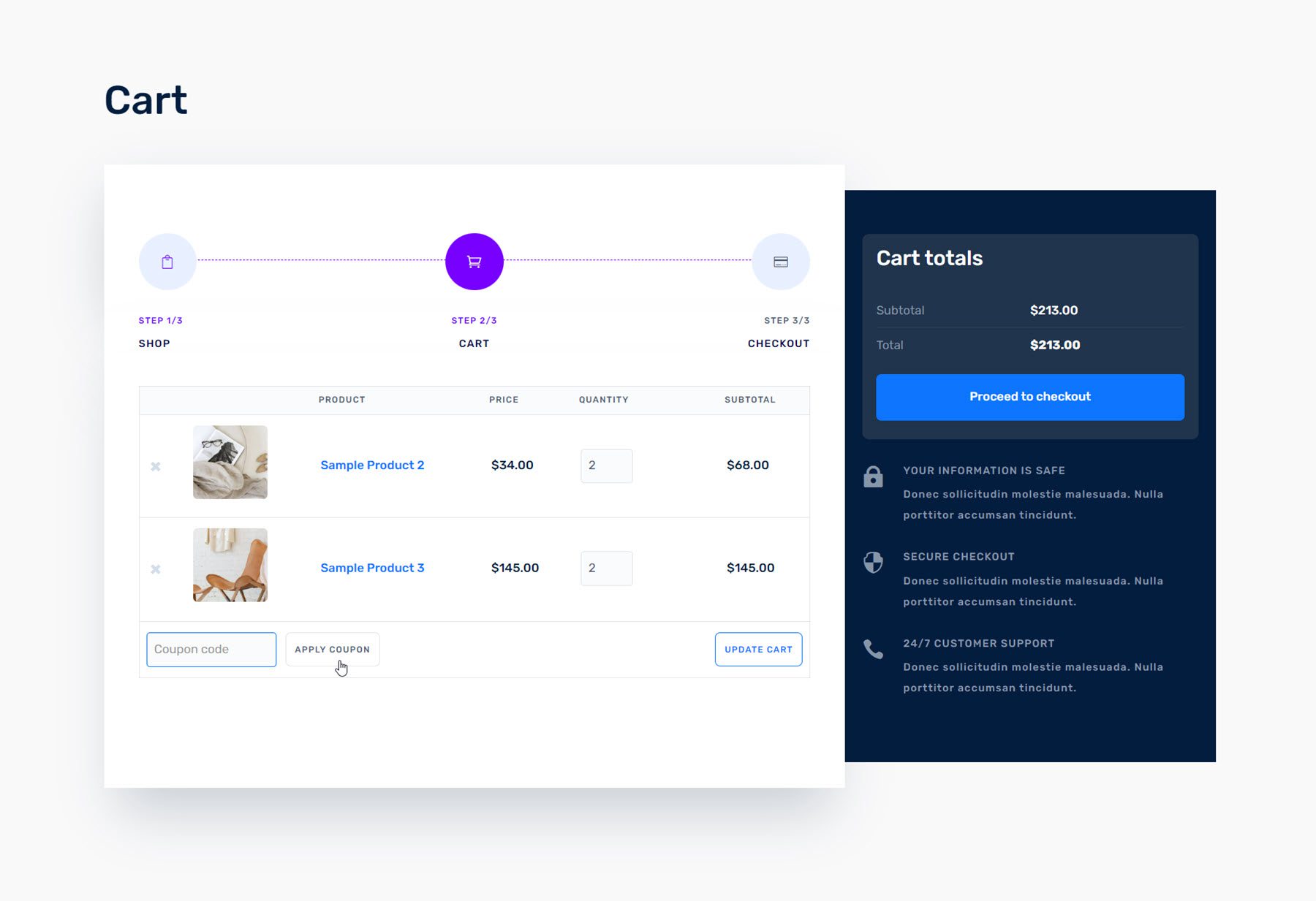
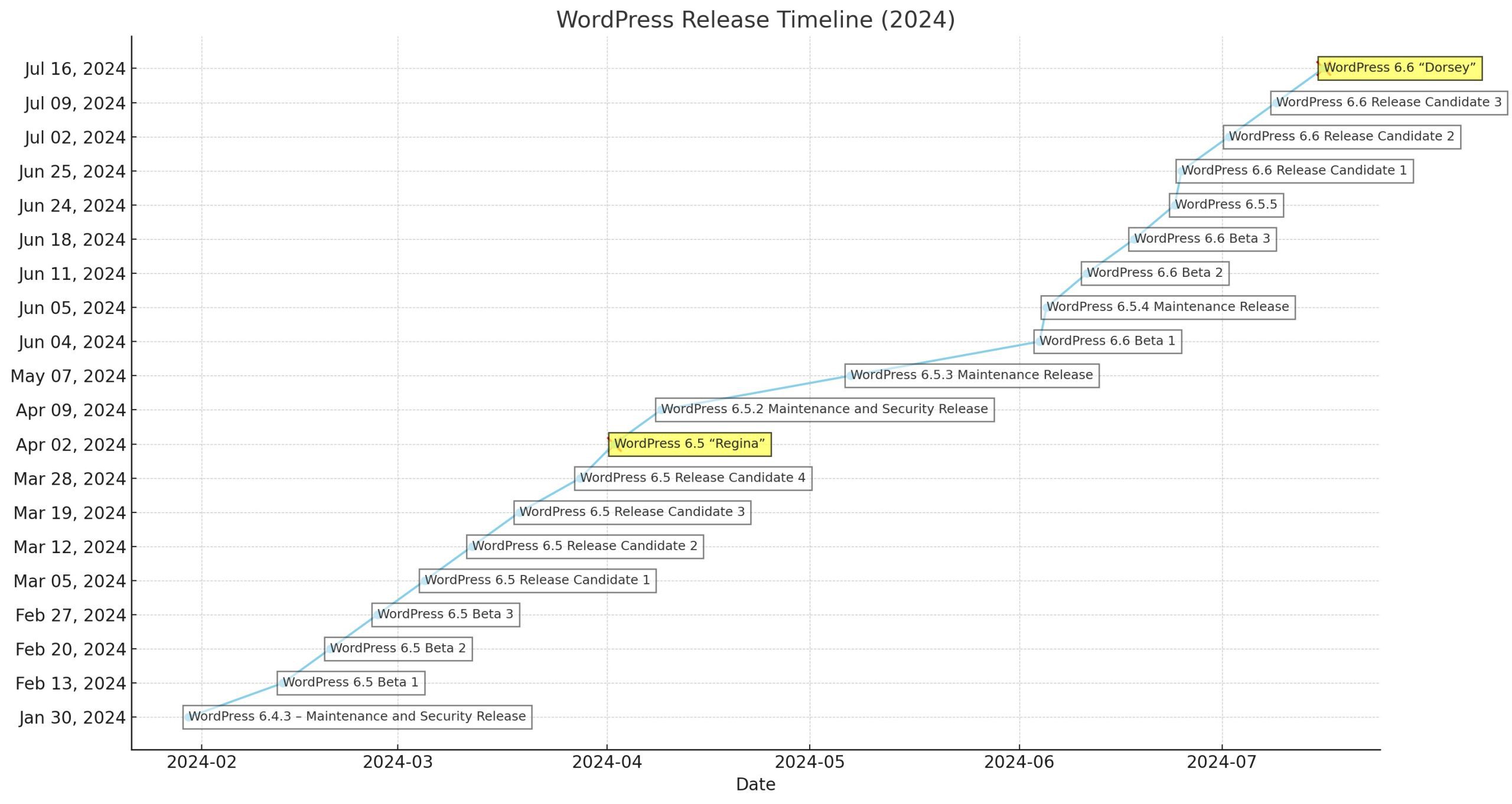
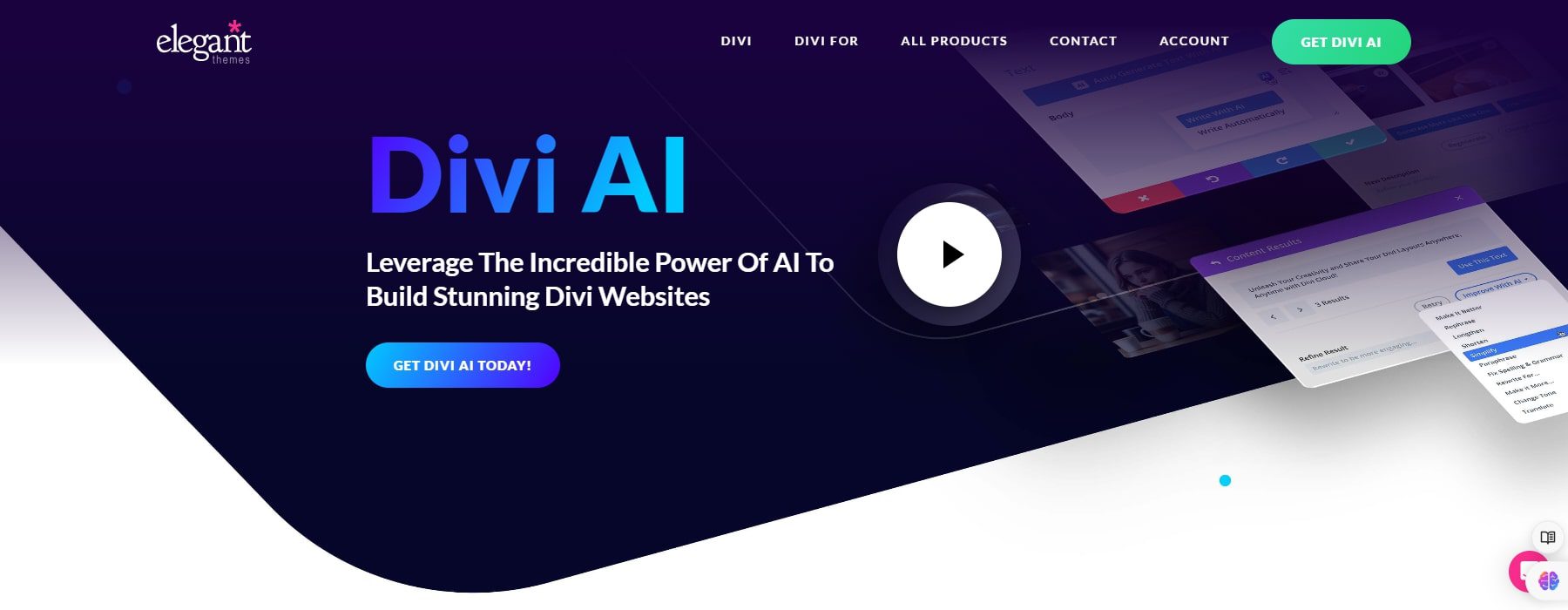
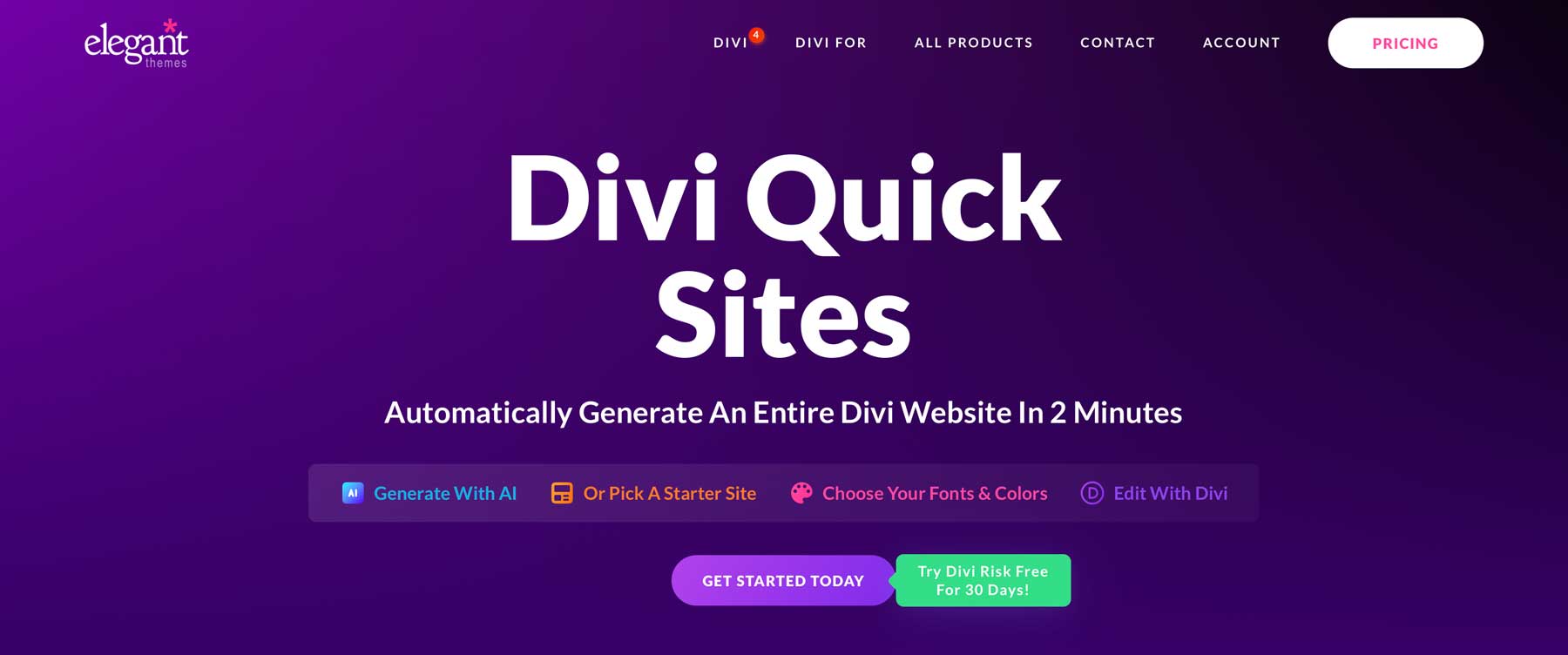
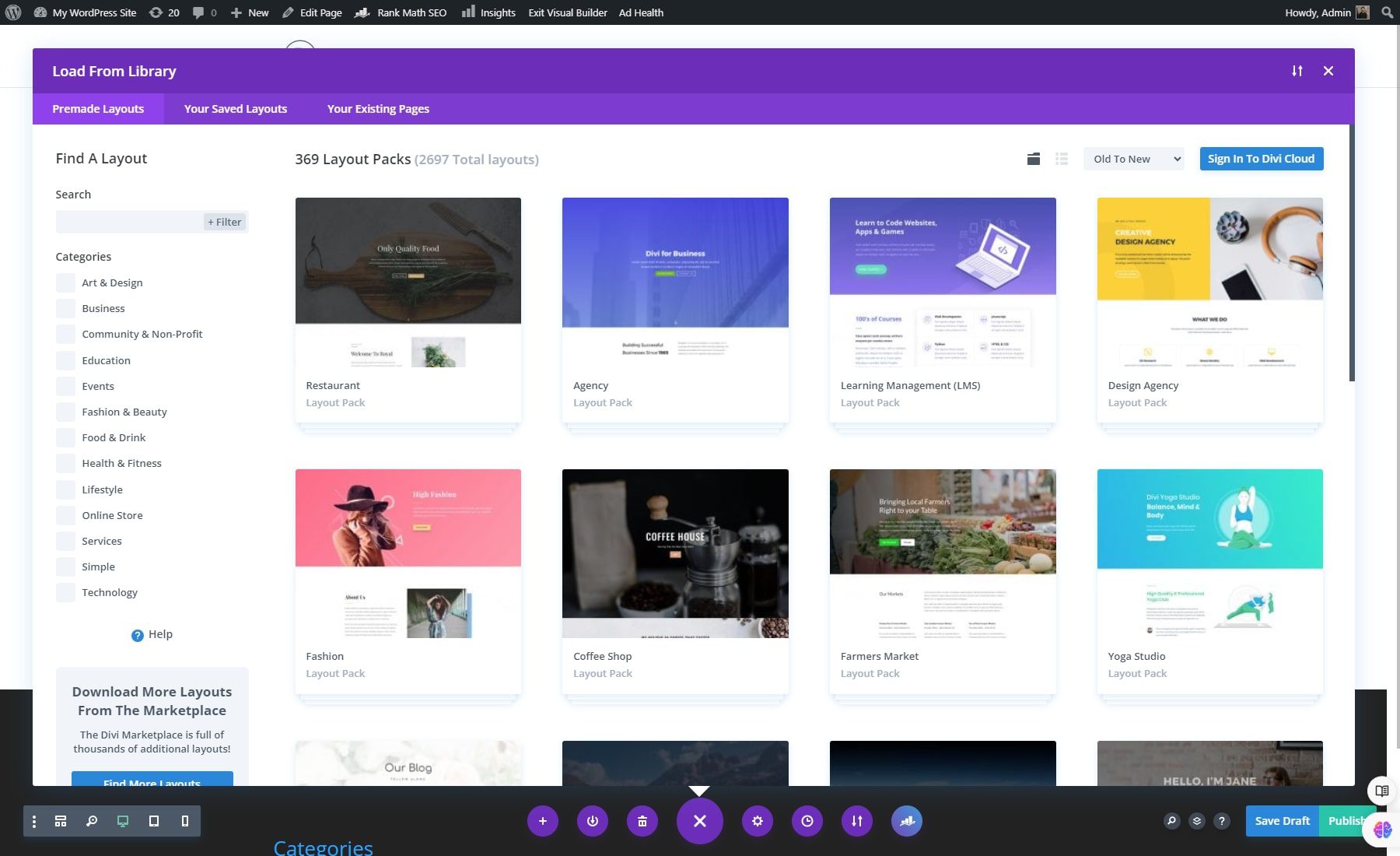



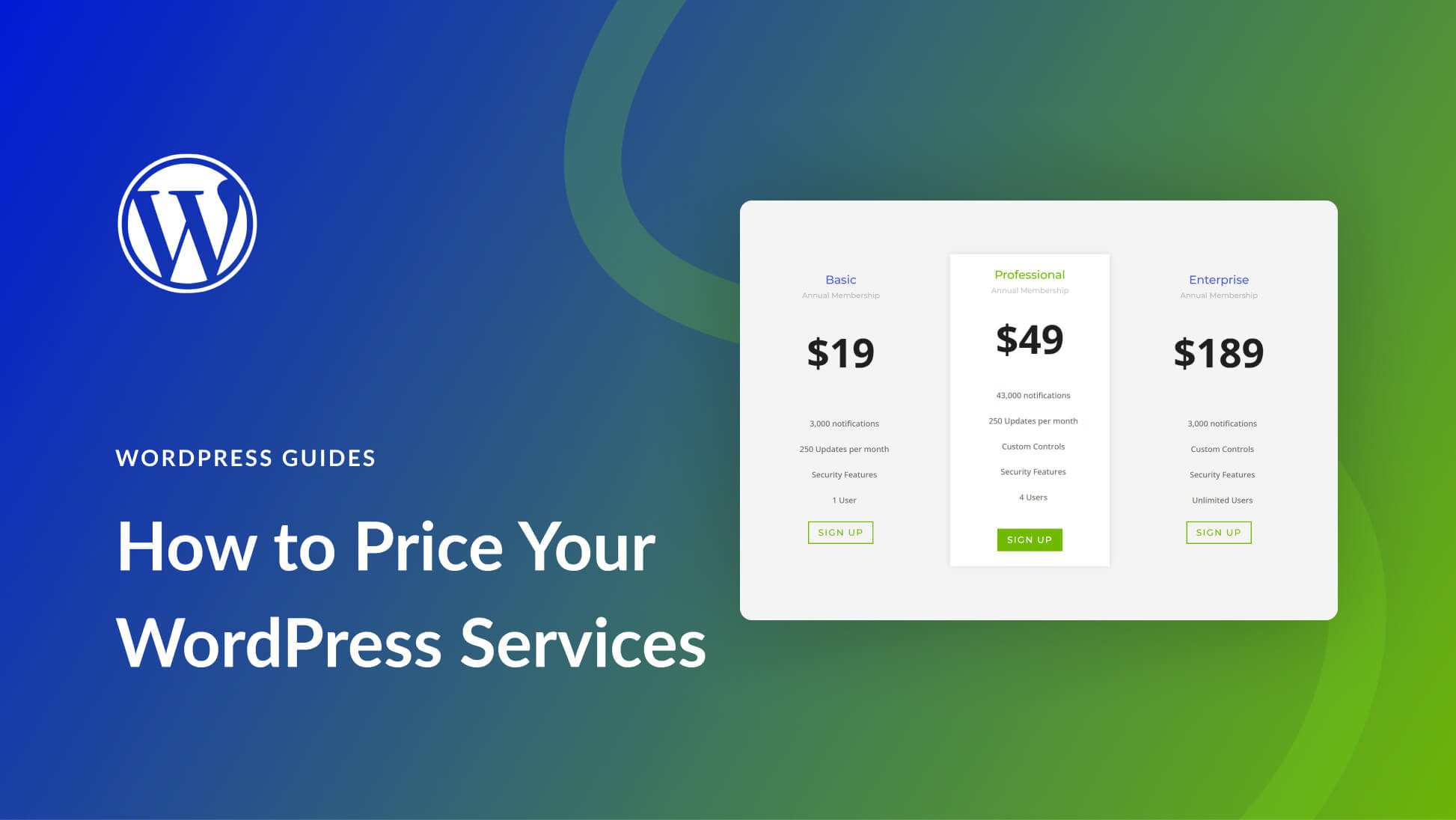
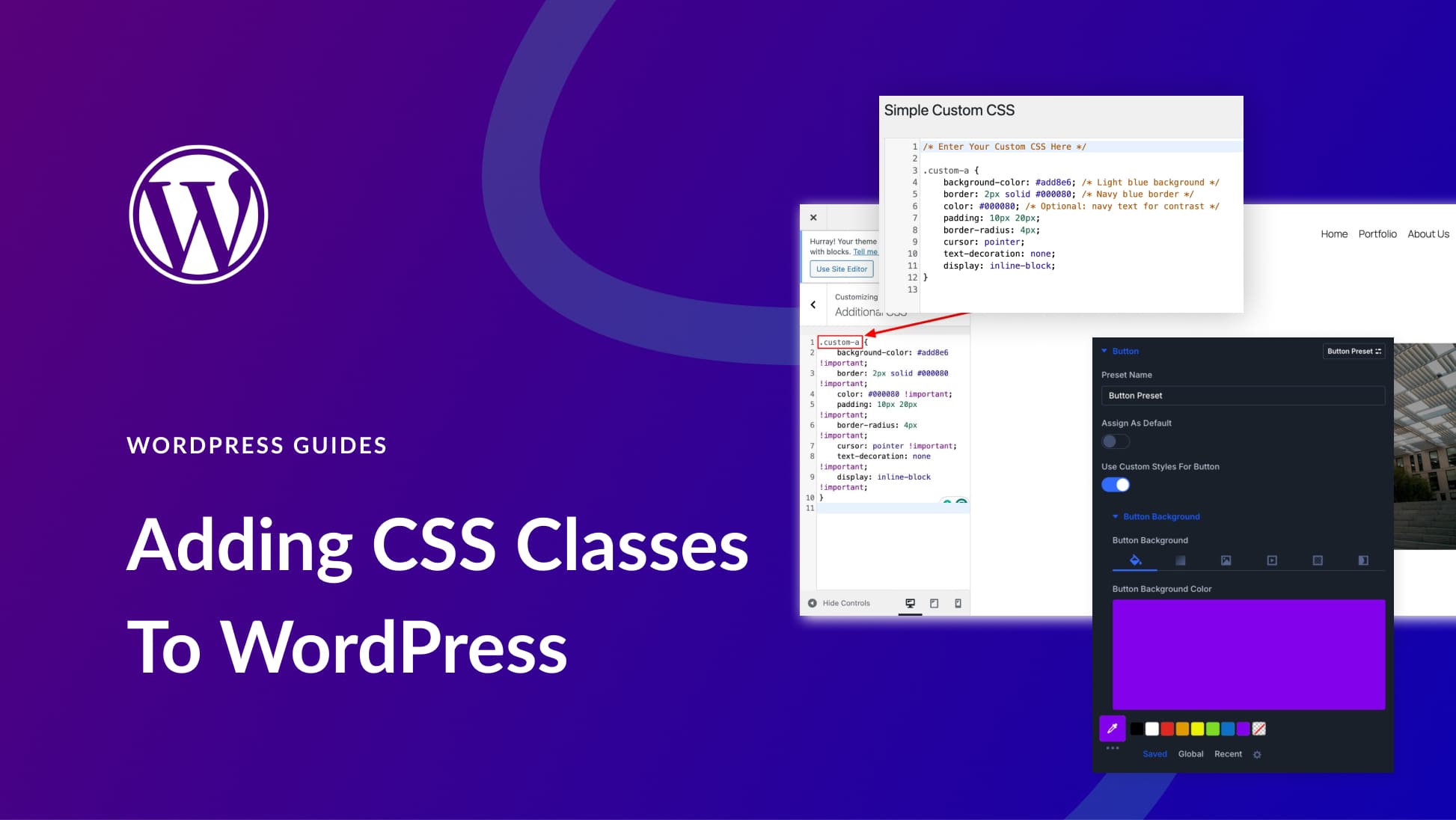

Leave A Reply